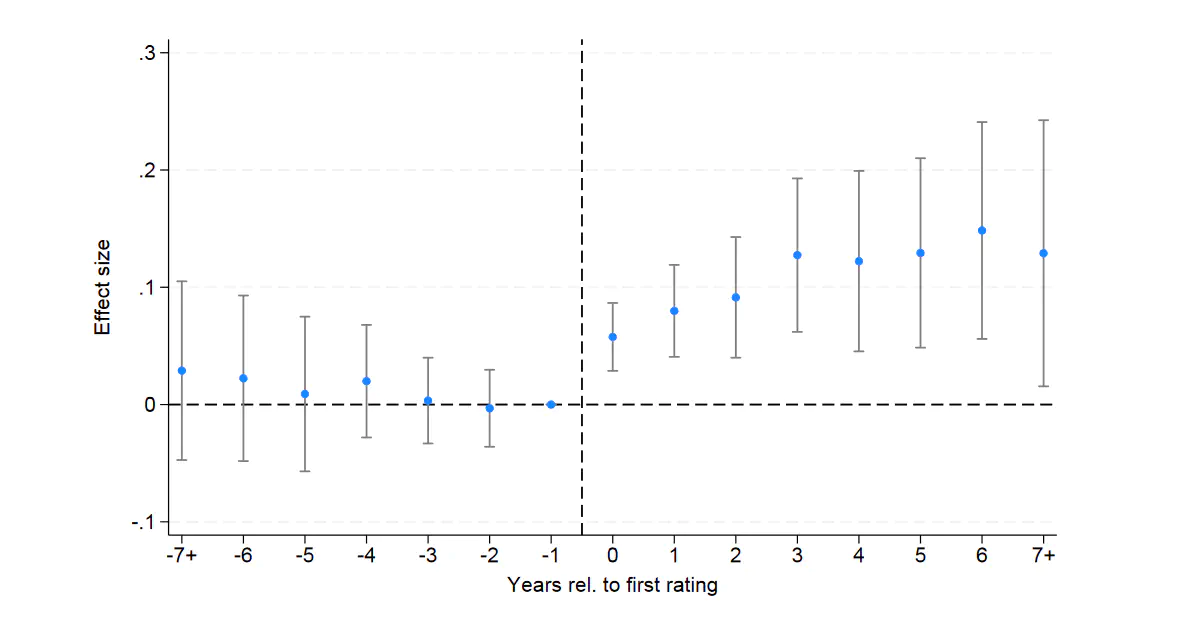Lost Potential? Student Sorting in German Higher Education

Abstract
This study asks how public information on the within-field-of-study quality distribution of universities affects college choice. We combine an ordinal tier ranking published by the German newspaper “Die Zeit” and register data on higher education students. Differences-in-differences estimates show that being ranked in the top tier increases the average distance traveled by freshmen within a program by over 7%. The results are larger in dynamic specifications and robust to controlling for the local rent level. Rankings based on recommendations by faculty are overall less effective. We discuss how information provision on program quality can affect educational mismatch and implications for inequality.
Publication
draft available upon request, work in progress